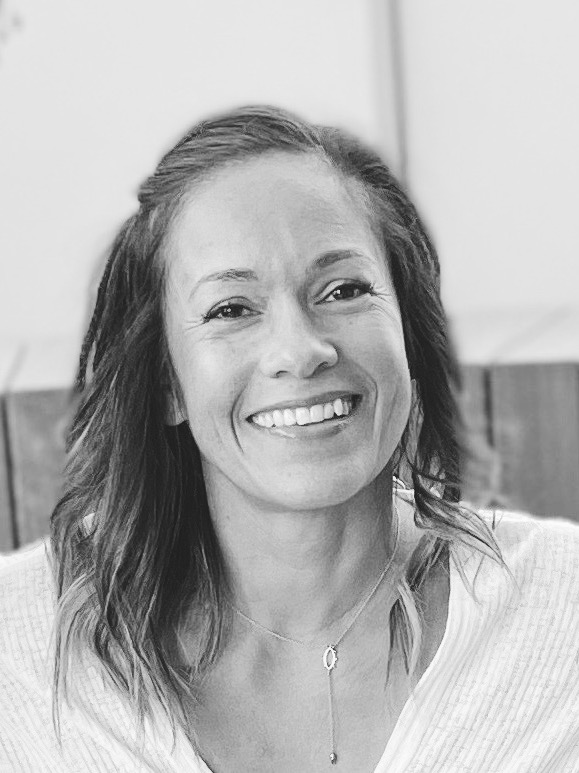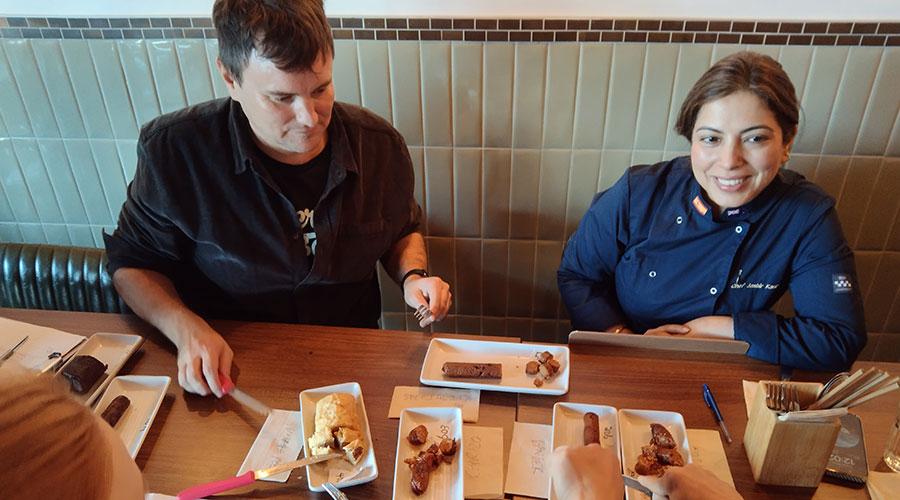Doctors for Nutrition: The Art of Healthy Whole Food Communication

Elements of nutrition
The art of healthy whole food communication
Many of us are delighting in the recent rise and rise of plant-based eating. Research indicates this positive trend will only continue to grow. Global giants like McDonald’s, IKEA, and Cadbury also agree, providing new plant-based options.
The science is clear: there is an urgent need to move towards consuming largely plant-based diets for our personal health and planetary sustainability. So when your dietary choices are questioned, it can sometimes lead to awkward and slightly frustrating encounters where the only rebuttal that comes to mind is the shrugging emoji.
We’ve all been there: “No, plants do not have feelings”, “Yes, I do get enough protein”, “No, drinking soy milk is not leading to deforestation (your consumption of animal-based foods is actually having more of an impact than my soy latte)”, and “Yes, tofu does taste delicious once you learn how to prepare it”.
How can we turn these irksome situations into an opportunity? By changing a few small ways you communicate your own choices, you may find more open ears and constructive questions.
Learning effective communication — the ability to practice healthy ways to relate — is not just reserved for your ‘plant-based conversations’, these reminders will serve you well across all your relationships.
Let’s explore how to approach interactions with friends and family who might be sceptical of your plant-based lifestyle.
1: Put yourself in their shoes
Take the time to identify what stops them from trying more plant-based meals and provide specific actions they can try. An example might be your over-worked sister with three small kids; her barrier is the difficulty of finding meals the whole family will enjoy. Why not double-batch your next lentil spaghetti bolognese and drop some over? You could share some other plant-based versions of traditional favourites, like a taco dinner or a plant-based ‘butter chicken’ too.
2: Learn from our own culture
Storytelling has an important place in New Zealand’s culture. Māori storytelling is an oral tradition that has allowed us to transfer knowledge in a very powerful way during our long history. These stories spark our imagination, help us understand the world, and stay with us well beyond a list of dry facts.
Stories transform abstract concepts — such as saturated fats raise your LDL levels — into real-life, human examples people can understand. Revealing your switch to a whole food plant-based diet was driven by a diagnosis of high cholesterol and that your ‘bad’ (LDL) cholesterol dropped enough to stop your medication, is much more powerful. Personal stories make it easier to comprehend, remember and pass on.
3: Get to know your facts
This is not about bombarding your friends with plant-based facts (see number 2), it is about being able to answer them correctly if they are curious. Having a factual answer shows your choice is grounded in truth. We are fortunate enough to have access to so many evidence-based resources (including plenty of free tools on the Doctors For Nutrition website), if you aren’t sure it is a great opportunity to do some learning of your own and get back to them.
4: Be encouraging
When your uncle proudly tells you he has swapped his beef burger for a Beyond Burger it is important to be complimentary of this step. Personally, you might follow a whole food plant-based diet, avoiding meat substitutes, but for someone who was resistant to moving away from animal-based products, this is a huge step in the right direction. Not just from a dietary perspective, but also emotionally, the door is open to further change. Welcome and celebrate any movement towards healthier habits.
5: Don’t try to convert
Make it clear your decision to follow a plant-based diet is just for you and you aren’t asking or expecting anybody to join you. Food is steeped in tradition and culture, moving away from what many see as ‘the norm’ can give the impression you are being an extremist trying to indoctrinate… not words you want associated with a choice founded on science and compassion.
6: Don’t try and fight the myths
According to several psychological studies, the repetition of simple words and phrases can convince us that they are true, even if they aren’t. We are more likely to believe ideas that come easily to us; therefore, the more familiar we become with words and ideas, the more we take them to be true. ‘Dairy is the best source of calcium for growing bones’ would be one many of us New Zealanders can relate to, another is that ‘carbs are bad’. Rather than feeling the need to raise these misconceptions in order to quash them, focus on the benefits of enjoying a whole food plant-based diet.
7: Keep it positive
Frame your language around ‘more’ and ‘better’, not ‘banning’ and ‘removing’. Explain what you are hopeful for, not what you fear or dislike. For example, rather than saying you are worried about losing them to chronic disease, frame it around your desire to see them live a long and healthy life. Rather than saying they must remove meat from their meals, suggest adding an extra handful of veggies onto their dinner plate.
Noone wants to feel judged or shamed by their choices or they withdraw or attack. Shaming people doesn’t motivate people to change.
8: Lead by example
Communication isn’t just about the verbal, you can also guide your loved ones through your behaviour instead of your words. The best way to show someone the benefits of your plant-based lifestyle is by demonstrating how well it works for you. When we take care of ourselves it shows and it will be noticed by everyone around us.
Each of us has our own story for why we became plant-based. These stories enable us to express our values as lived experience — and not just facts — they have the power to move other people to act if we use them in the right way.
Alicia Temple is the communications and relationships lead for Doctors For Nutrition, an Australian not-for-profit health promotion charity led by medical and dietetic professionals (doctorsfornutrition.org)
- Aotearoa Vegan and Plant Based Living Magazine
This article was sourced from the Autumn 2022 edition of The Vegan Society magazine.
Order your own current copy in print or pdf or browse past editions.
Disclaimer
The articles we present in our magazine and blog have been written by many authors and are are not necessarily the views and policies of the Vegan Society.
Enjoyed reading this? We think you'll enjoy these articles:
Vegan Whispers in our Childhood Reading?
Vegan Whispers in our Childhood Reading? Ian Duffield dives into the canon of classic children’s books to explore the way animals have …
The Humanity Trigger
The Humanity Trigger First-time author Mark Fitzpatrick, AKA Mark Humanity, shares his war stories as a veteran hunt saboteur in Europe, along …
NZ’s Best Vegan Bangers
NZ’s Best Vegan Bangers Claire Insley, the Vegan Society’s media spokesperson, heads along to the NZ Vegan Sausage Awards, an annual celebration …




